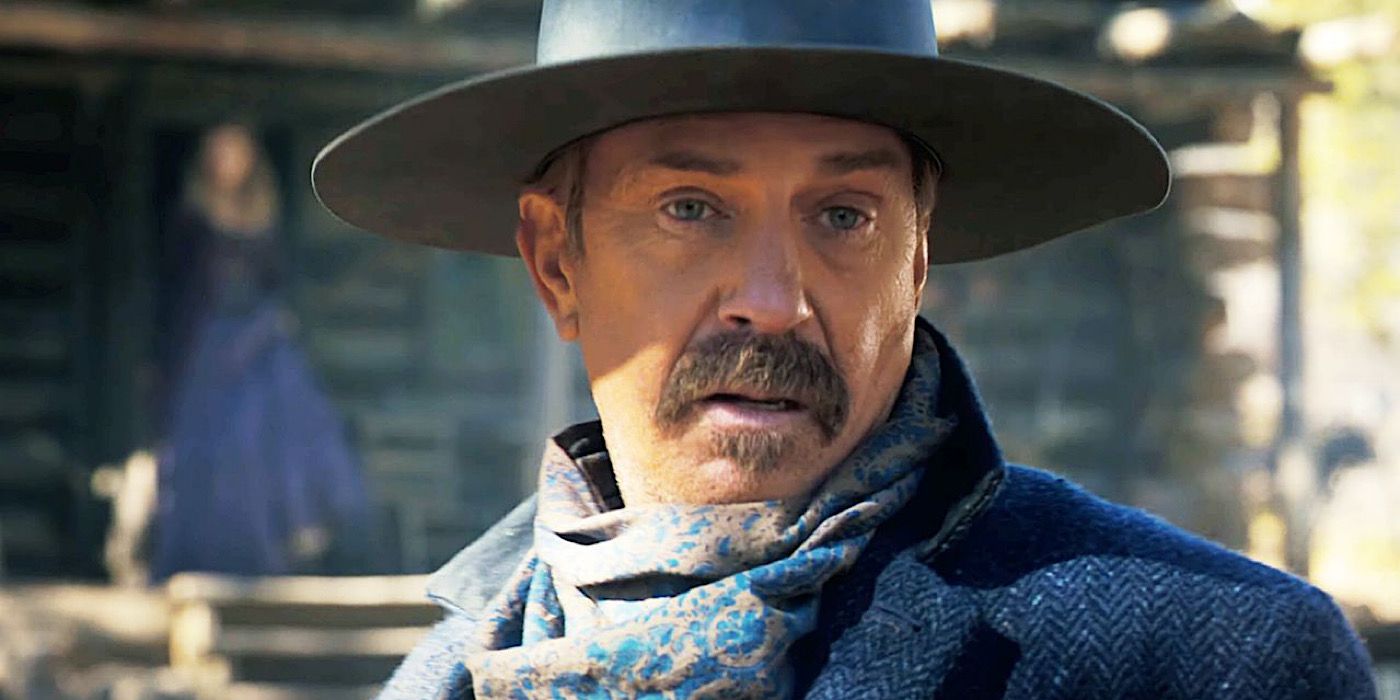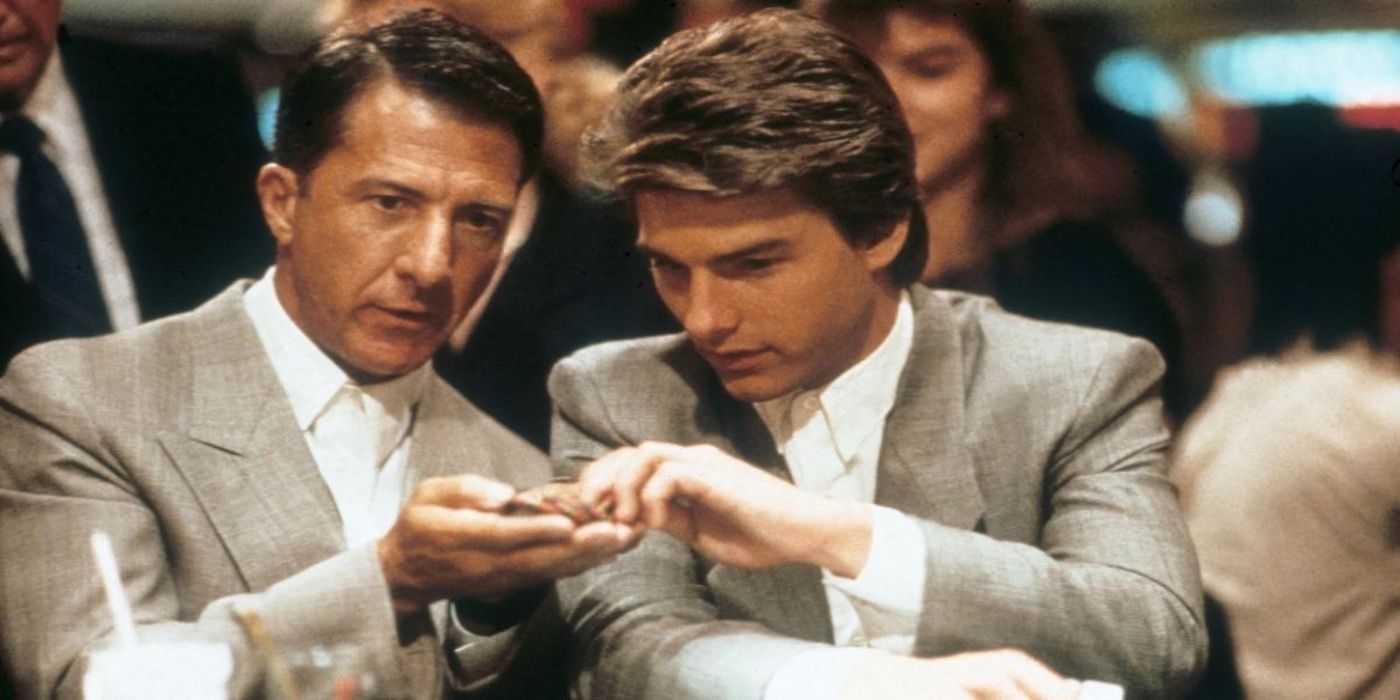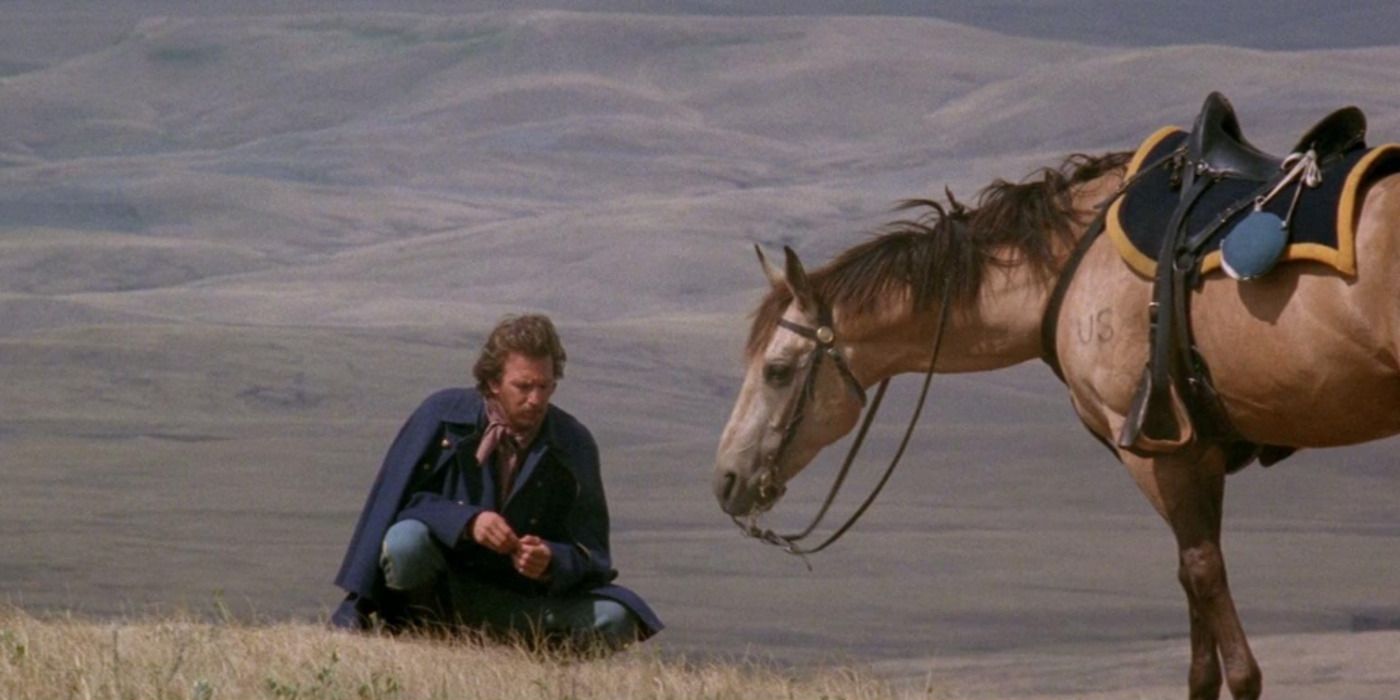35 years after first quietly taking the world by surprise, Dances with Wolves is today considered one of the best Westerns ever made, and the high-water mark of Kevin Costner‘s career. At the time, however, it was a cynical bargaining chip, encapsulating every stereotype about Hollywood power brokers. Costner had repeatedly made hits, but his newest pitch was met with a cold reception from Hollywood. He wished to star in, produce, and direct a long Western utilizing authentic Native American languages. This genre was box-office poison in the ’80s, but in a move of pure panic, the studio signed on to make the film in order to keep in the good graces of Costner’s new talent agency.
Orion loathed the project but couldn’t risk offending anyone powerful. It wasn’t even a gamble as much as the only viable move Orion had, basically stuck with a historically accurate epic about a setting that went out of style twenty years prior. As crazy as it sounds, sometimes studios are willing to toss money at a celebrity or their talent agency to keep the machinery greased — the Creative Artists Agency is the impetus for this particular piece of cinema history. Dances with Wolves is the reason that actors thank their agent at award shows.
An Unfulfilled Artist, a Floundering Studio, and a Conniving Agent Join Forces
In 1989, Orion Pictures had become a joke in LA. In tone with his insider jokes, 1991 Academy Awards host Billy Crystal mocked them the same year that Costner’s weird neo-Western flick was nominated for a dozen awards. Meanwhile, Costner was the next big thing. More importantly to financiers, his films consistently yielded a tidy profit. Unfortunately, he now insisted on the director’s chair. Three separate studios rejected his unreasonable demands and projected budget for his ambitious Western, Costner realizing he’d have to direct, or the script would be ruined. Money was hard to find, as studios worried his ego was inflating. As he told the NYT in 1990, “Ultimately, they couldn’t do what they said they could do. A lot of people talk about $18 million, but when it comes to writing the check, it all thins.”
Related
Don Johnson Turned Down the Iconic ’80s Movie That Made Kevin Costner a Superstar
Exhausted of being associated with the cop shtick, Don Johnson happily passed on his chance to match wits against Al Capone.
He needed divine intervention. Thanks to some nudging, Orion relented, hoping to weather a lone flop from Costner, making up the difference with a couple of mid-sized comedies or dramas. In three years, Costner rapidly churned out hits like Bull Durham and No Way Out for distributor Orion, in addition to Field of Dreams in 1989, and his breakthrough performance in The Untouchables in 1987. His face was so recognizable abroad that he had even started filming beer commercials in Japan. The approximately $20-million budget — half of which the cash-strapped Orion coughed up — was a small price to pay for his heartfelt vanity project. Keep in mind, he still needed to dump his own paycheck right back into the film to supplement the meager budget.
The Don of the Hollywood Mafia
To fully understand this chapter of the film industry, we have to look to the man instrumental in making Dances with Wolves happen, Costner’s (then-new) agent, Michael Ovitz. He brokered the agreement. Feared and respected in equal measure, Ovitz wasn’t afraid of making ultimatums or kissing ass in the same breath, using his star-studded clientele list as a cartel. At one point, Robert Redford, Steven Spielberg, Sean Connery, Tom Cruise, Dustin Hoffman, Barry Levinson, Michael Caine, Steven Martin, and Daryl Hannah all relied on one man to secure them big paydays. Hoffman, Cruise, and Levinson were all part of a notable CAA “package” Ovitz negotiated to make Rain Man. Referred to as the “doorkeeper” by Orion co-founder Mike Medavoy in his memoir, Ovitz outmaneuvered all his competitors by 1990:
“From the mid-’80s through the late ’90s, CAA controlled the flow of talent and, therefore, films from Hollywood to the screen. But CAA became more than a talent agency. Ovitz used his influence to reach into all arenas of entertainment, from sports and music to the selling of movie studios. Ovitz even convinced Coca-Cola to hire CAA to redesign its image.”

Related
Kevin Costner’s firm Horizon Series is now the subject of several lawsuits.
Ovitz wooed Costner away from his old agency by promising to coerce a studio to bankroll his supposedly unfilmable epic, as explored in Spy Magazine. It wasn’t just a gargantuan boost to the CAA but a crippling blow to rival agency, William Morris. In retrospect, Dances with Wolves wasn’t only a movie, but also a skirmish in a larger war, Ovitz squeezing his rivals by poaching their biggest names one by one.
He did this by bundling his actors, directors, screenwriters, and singers, threatening studios to make concessions to CAA. Celebrities got on his good side because their careers depended on it. When writer Joe Eszterhas expressed interest in abandoning CAA, he was reportedly informed that CAA was assigning a hit squad “to blow [his] brains out” on Wilshire Boulevard to prove a point to other defectors. Little wonder Orion caved to his browbeating.
The Stars Align for an Unlikely Pop-Culture Phenomenon
A bomb on paper, Dances with Wolves turned out to be a massive critical and financial success, even beating out the likes of Martin Scorsese’s Goodfellas for Best Picture, Adapted Screenplay, Best Director, and Editing at the Oscars. Though, we would argue, Goodfellas probably deserved some of those awards, especially in regard to the editing category. In any case, it goes to show how outrageously lucrative Costner’s elaborate passion project truly was and how absolutely no one saw it coming.
Costner’s good luck continued for a few more years, making JFK, The Bodyguard, and Robin Hood: Prince of Thieves, but even he couldn’t hit home runs at every bat, damaging his superstar persona with critical flops Waterworld and The Postman. Orion didn’t survive, and could only temporarily coast on the accolades of Dances with Wolves for so long. Ovitz, too, would succumb to fate, taking over the Disney presidency briefly before being fired in a humiliating legal nightmare. Maybe it was karma catching up to him.
This story originally appeared on Movieweb



